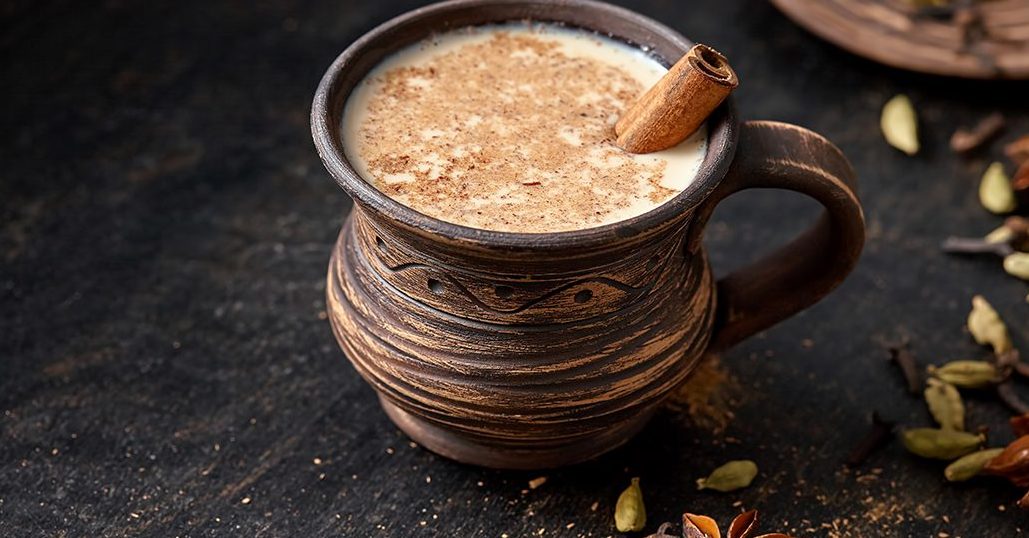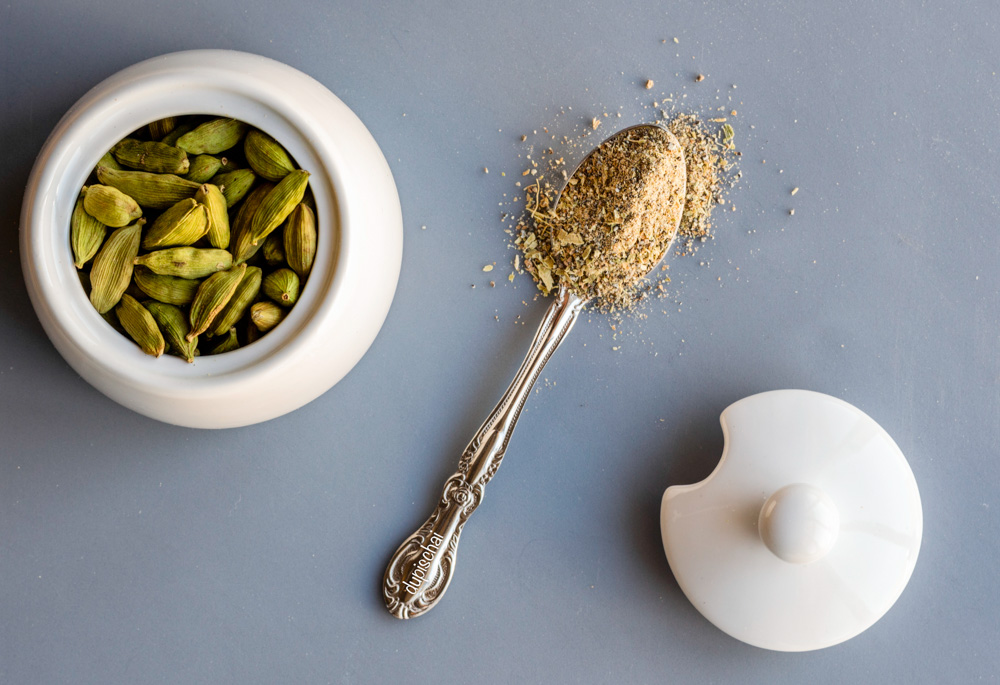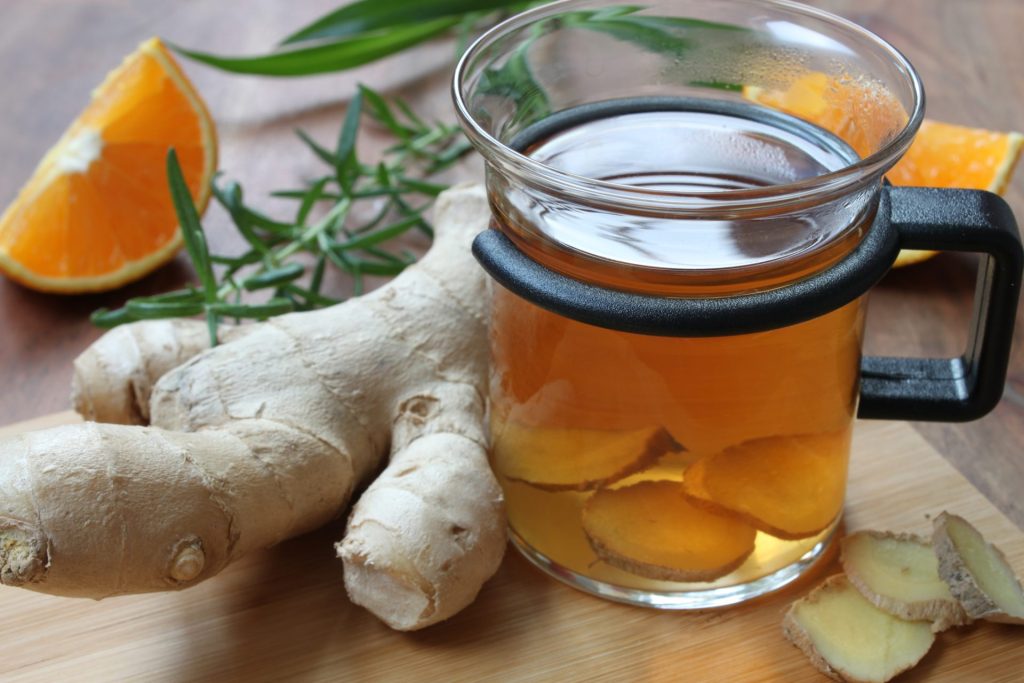Cardamom, a spice native to the Indian subcontinent, has been prized for its culinary and medicinal properties for centuries. Among its many uses, cardamom is commonly brewed into a fragrant and flavorful tea that offers a wide array of health benefits.
In this comprehensive exploration, we delve into the potential advantages of consuming cardamom tea, backed by scientific research and traditional wisdom.

1. Antioxidant Properties
Cardamom boasts potent antioxidant properties due to its rich content of flavonoids, phenolic compounds, and volatile oils. These antioxidants help neutralize harmful free radicals in the body, reducing oxidative stress and protecting cells from damage.
Research suggests that regular consumption of cardamom may contribute to overall health by combating inflammation, lowering the risk of chronic diseases such as heart disease and cancer, and promoting longevity.
Incorporating cardamom into your diet or enjoying cardamom tea can be a flavorful way to harness its antioxidant benefits and support your well-being.
Cardamom: The Fragrant Jewel of Spice Trade
2. Digestive Health
Cardamom has long been celebrated for its ability to promote digestive health and alleviate gastrointestinal discomfort. This aromatic spice contains essential oils like cineole, terpinene, and limonene, which possess carminative properties, aiding in the relief of bloating, gas, and indigestion. Cardamom stimulates the secretion of digestive juices, facilitating the breakdown of food and enhancing nutrient absorption. Additionally, its anti-inflammatory properties may soothe the digestive tract, reducing inflammation and discomfort.

Studies have shown that cardamom may help prevent and treat digestive issues such as acid reflux, stomach ulcers, and irritable bowel syndrome (IBS). By promoting healthy digestion, cardamom can contribute to overall wellness and vitality.
One popular way to incorporate cardamom into your diet for digestive health is by brewing it into a soothing tea. Cardamom tea can help relax the digestive muscles, ease gastrointestinal spasms, and alleviate symptoms of indigestion.
Furthermore, the aromatic fragrance of cardamom tea can stimulate the senses and enhance the overall dining experience.
Whether added to culinary dishes or brewed into a comforting beverage, cardamom offers a flavorful and effective way to support digestive health. Including cardamom in your daily routine can help maintain gastrointestinal balance, alleviate discomfort, and promote optimal digestion for enhanced well-being.
3. Anti-inflammatory Effects
Cardamom exhibits notable anti-inflammatory effects attributed to its rich array of bioactive compounds, including cineole, limonene, and alpha-terpineol. These compounds exert anti-inflammatory actions by inhibiting the production of inflammatory mediators and enzymes, such as cyclooxygenase and lipoxygenase, which play key roles in the inflammatory process.
Studies have shown that cardamom may help alleviate inflammation in various parts of the body, including the digestive tract, joints, and cardiovascular system. By reducing inflammation, cardamom may offer relief from conditions such as arthritis, inflammatory bowel disease (IBD), and cardiovascular disease.
Additionally, cardamom’s anti-inflammatory properties contribute to its potential benefits for respiratory health. Inhaling the aromatic compounds present in cardamom may help soothe inflammation in the respiratory tract, providing relief from symptoms of conditions like asthma, bronchitis, and allergies.
4. Oral Health Benefits
Cardamom tea offers remarkable oral health benefits attributed to its potent antimicrobial and breath-freshening properties. This aromatic beverage contains essential oils like cineole and limonene, which exhibit strong antimicrobial activity against bacteria responsible for bad breath, cavities, and gum disease. Regular consumption of cardamom tea or rinsing with cardamom-infused mouthwash can help inhibit the growth of oral bacteria, promoting dental hygiene and preventing oral health issues.
Moreover, the refreshing aroma and flavor of cardamom tea can mask unpleasant odors and leave the mouth feeling clean and revitalized. Its natural breath-freshening properties make it an excellent choice for combating halitosis and maintaining oral freshness throughout the day.
Research suggests that cardamom may also possess analgesic properties, providing relief from toothache and oral discomfort. Additionally, its anti-inflammatory effects can help reduce gum inflammation and support periodontal health.

Incorporating cardamom tea into your daily routine can be a flavorful and effective way to support oral health. By enjoying a cup of cardamom tea regularly or incorporating cardamom-infused products into your oral care regimen, you can harness the natural benefits of this aromatic spice to maintain a healthy and vibrant smile.
5. Blood Pressure Regulation
Cardamom tea offers potential benefits for blood pressure regulation, thanks to its rich array of bioactive compounds and traditional medicinal uses. Research indicates that certain components of cardamom, such as cineole and alpha-terpineol, may contribute to its hypotensive effects, promoting relaxation of blood vessels and improving blood circulation.
Regular consumption of cardamom tea as part of a balanced diet and lifestyle may help lower blood pressure levels, reducing the risk of hypertension and associated cardiovascular complications. By promoting vasodilation and enhancing blood flow, cardamom tea supports optimal cardiovascular function and may help prevent conditions like heart disease and stroke.
Moreover, the antioxidant properties of cardamom contribute to its cardiovascular benefits by reducing oxidative stress and inflammation, which are key contributors to cardiovascular disease development. By combating free radicals and inflammatory markers, cardamom tea helps protect blood vessels and maintain their elasticity, further supporting healthy blood pressure levels.

6. Cholesterol Reduction
Cardamom tea may offer benefits for cholesterol reduction, contributing to cardiovascular health and lowering the risk of heart disease. Studies suggest that certain compounds found in cardamom, such as cineole and alpha-terpineol, may help lower levels of LDL (bad) cholesterol while increasing HDL (good) cholesterol.
The antioxidant properties of cardamom play a crucial role in cholesterol reduction by inhibiting the oxidation of LDL cholesterol particles. Oxidized LDL cholesterol is more likely to contribute to the buildup of plaque in the arteries, leading to atherosclerosis and increased cardiovascular risk. By neutralizing free radicals and reducing oxidative stress, cardamom tea helps protect against cholesterol-related damage to blood vessels and promotes heart health.
Moreover, the anti-inflammatory properties of cardamom contribute to its cholesterol-lowering effects by reducing inflammation in the arteries and preventing the formation of plaques. By promoting vascular health and reducing the risk of atherosclerosis, cardamom tea supports optimal blood flow and cardiovascular function.

Incorporating cardamom tea into your daily routine can be a flavorful and enjoyable way to support cholesterol management and overall cardiovascular wellness. However, it’s essential to complement this with a balanced diet rich in fruits, vegetables, whole grains, and lean proteins, as well as regular physical activity, for comprehensive cholesterol control. Always consult with a healthcare professional for personalized advice on managing cholesterol levels and incorporating cardamom tea into your wellness routine.
7. Weight Management
Cardamom tea may offer benefits for weight management, contributing to a healthy lifestyle, and supporting weight loss efforts. While research specifically on cardamom tea’s effects on weight management is limited, cardamom’s digestive benefits and metabolism-boosting properties make it a valuable addition to a weight loss regimen.

Cardamom tea aids digestion by stimulating the secretion of digestive enzymes, promoting efficient nutrient absorption, and reducing bloating and indigestion. By improving digestion, cardamom tea may help prevent overeating and promote feelings of fullness, supporting portion control and healthy eating habits.
Moreover, cardamom contains compounds like cineole and limonene, which have metabolism-boosting effects. These compounds help increase metabolic rate and enhance fat burning, potentially aiding in weight loss and body fat reduction.
Additionally, cardamom tea’s antioxidant properties may help combat oxidative stress, which can contribute to obesity-related complications. By neutralizing free radicals and reducing inflammation, cardamom tea supports overall health and vitality during weight loss journeys.
Incorporating cardamom tea into your daily routine can be a flavorful and satisfying way to support weight management goals. However, it’s essential to complement this with a balanced diet and regular physical activity for optimal results. Always consult with a healthcare professional for personalized advice on weight management strategies and incorporating cardamom tea into your wellness routine.
Conclusion
Cardamom tea offers a multitude of health benefits, ranging from antioxidant and anti-inflammatory properties to digestive support and potential contributions to weight management.
This aromatic beverage promotes overall well-being by supporting cardiovascular health, aiding digestion, regulating blood pressure and cholesterol levels, and potentially assisting in weight management efforts.
With its rich array of bioactive compounds and traditional medicinal uses, cardamom tea serves as a flavorful and enjoyable addition to a balanced lifestyle, offering numerous ways to nurture health and vitality.
